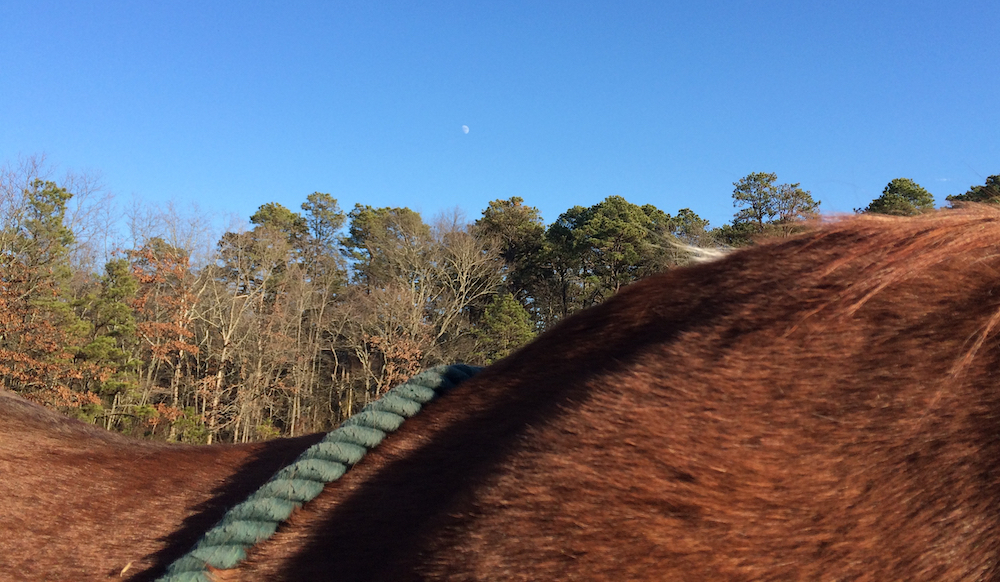We embody different roles to meet the needs of our animal companions, such as caretaker, friend, guide and teacher. We also play the role of protector. We make choices to keep them safe from potential dangers; everything from offering shelter from intense sun to selecting healthy food for them to eat. On some occasions, domesticated animals need our intervention to protect them from a direct attack by another animal.
Our animals also need us to step into the role of protector when they experience a perceived threat – even if we, as humans, believe that their fear is unfounded. Addressing your animal’s emotional needs in these situations, provides them with a sense of safety that calms their nervous system and reduces their stress. This increases their sense of well-being, allowing for the natural process of healing in the horse to unfold and deepen the bond between you.
 My horse, Herz, taught me a lesson in this. Herd animals have a social structure that provides protection for the group by sharing a vigilant awareness of the environment. When I hand grazed my horse in an open field, he expected this same behavior from me. Herz helped me understand this one day, by repeatedly raising his head from grazing to look at the tree line. Initially, I didn’t understand what he was communicating to me; so he used his nose to gently turn my body to face it. He clearly showed me that he wanted me to keep an eye on the tree line, to scan for potential threats. When I shifted my focus from watching him eat to facing the trees, he relaxed and fully savored eating the grass. I could feel the quiet joy this brought to his heart – and the happiness his healing energy brought to mine.
My horse, Herz, taught me a lesson in this. Herd animals have a social structure that provides protection for the group by sharing a vigilant awareness of the environment. When I hand grazed my horse in an open field, he expected this same behavior from me. Herz helped me understand this one day, by repeatedly raising his head from grazing to look at the tree line. Initially, I didn’t understand what he was communicating to me; so he used his nose to gently turn my body to face it. He clearly showed me that he wanted me to keep an eye on the tree line, to scan for potential threats. When I shifted my focus from watching him eat to facing the trees, he relaxed and fully savored eating the grass. I could feel the quiet joy this brought to his heart – and the happiness his healing energy brought to mine.